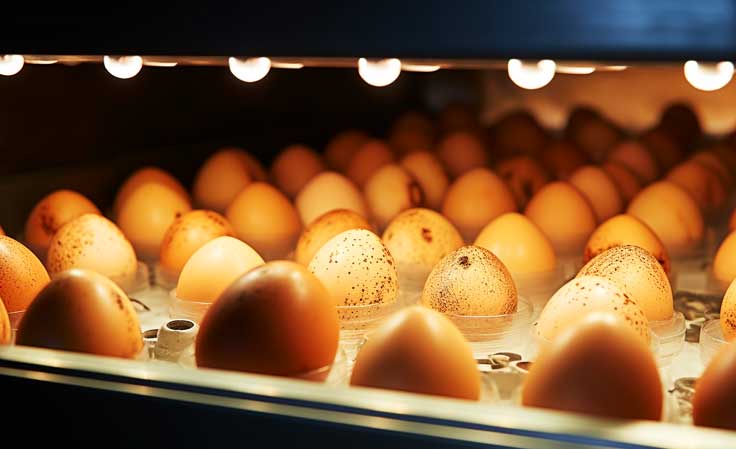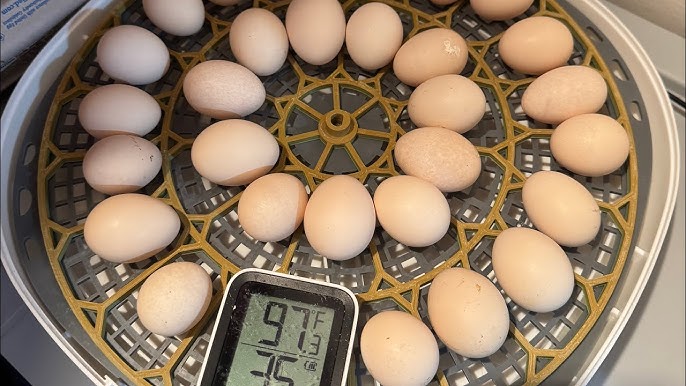Raising chickens can be an incredibly rewarding experience, especially when it comes to hatching eggs. However, many enthusiasts often face challenges, especially when using a chicken incubator. Understanding and learning from common mistakes with chicken incubators can be the key to success.

Choosing the Right Incubator
The first step in avoiding common mistakes with chicken incubators is selecting the right incubator. There are various types available, from manual to fully automatic. It’s essential to consider your needs and the number of eggs you plan to hatch. Small-scale projects might benefit from a simple, user-friendly incubator. In contrast, larger operations may require more advanced models.
Research and Reviews
Before purchasing, research and read reviews. Websites like Hatching Time provide valuable insights into different models.
Understanding Temperature Control
One of the most common mistakes with chicken incubators is incorrect temperature settings. The ideal temperature for hatching chicken eggs is around 99.5F (37.5C). Even slight deviations can affect the embryo’s development.
Invest in a Reliable Thermometer
Ensure your incubator is equipped with a reliable thermometer. Regularly check temperatures, as fluctuations can lead to low hatch rates or even deformities.
Humidity Levels and Their Importance
Humidity plays a crucial role in the incubation process. A common oversight is not maintaining the appropriate humidity levels, which should be around 50-55% for the first 18 days and increased to 65-70% during the last three days to facilitate hatching.
Using a Hygrometer
Invest in a quality hygrometer to monitor humidity levels accurately. Adjust as necessary, especially during seasonal changes.
Positioning the Eggs
Improper egg positioning is another common mistake with chicken incubators. Eggs should be placed with the pointed end facing down. This helps the chick develop correctly and ensures it has enough space to turn during hatching.
Turning the Eggs
It’s important to turn the eggs at least three times a day to prevent the embryo from sticking to the shell. Some incubators come with an automatic turning feature, which can be a worthwhile investment.
Ventilation: A Vital Component
Another oversight is inadequate ventilation. Proper oxygen flow is essential for embryo development. Make sure your incubator has sufficient airflow and avoid placing it in enclosed spaces.
Regular Monitoring
Check the incubator’s ventilation system regularly to ensure it’s functioning correctly. Adjust settings as needed to maintain a fresh air supply.
Handling Eggs with Care
Handling eggs roughly can lead to damage. Always wash your hands before touching the eggs to prevent transferring oils or dirt.
Regular Inspection
Inspect eggs during the incubation process to identify any with cracks or other issues. Remove these to prevent contamination.
Recognizing Signs of Trouble
It’s crucial to recognize signs of trouble early. Eggs that appear too dark or have a foul smell may indicate problems.
Seeking Expert Advice
Don’t hesitate to seek advice from experienced poultry farmers or resources like Manna Pro for guidance.
Cleaning and Maintenance
Regular cleaning and maintenance of the incubator are vital. A dirty incubator can harbor bacteria, affecting hatch rates.
Scheduling Cleaning
Schedule regular cleaning sessions, especially after each hatch, using safe methods. You can learn more about natural cleaning methods from Chicken Things and More.
Learning from Experience
Every hatching experience offers lessons. Keeping a journal or notes of each incubation cycle can help track what works and what doesn’t.
Continuous Improvement
Use each cycle to refine your techniques, ensuring better results in future hatches.
Conclusion
Avoiding common mistakes with chicken incubators requires attention to detail and a willingness to learn. By understanding the intricacies of the incubation process and staying informed, you can significantly improve your hatch rates and enjoy the rewards of raising healthy chicks.

FAQ
What is the ideal temperature for chicken egg incubation?
The ideal temperature is approximately 99.5F (37.5C).
How often should eggs be turned during incubation?
Eggs should be turned at least three times a day.
Why is humidity important in a chicken incubator?
Humidity ensures proper moisture levels, crucial for embryo development and successful hatching.
This article contains affiliate links. We may earn a commission at no extra cost to you.











